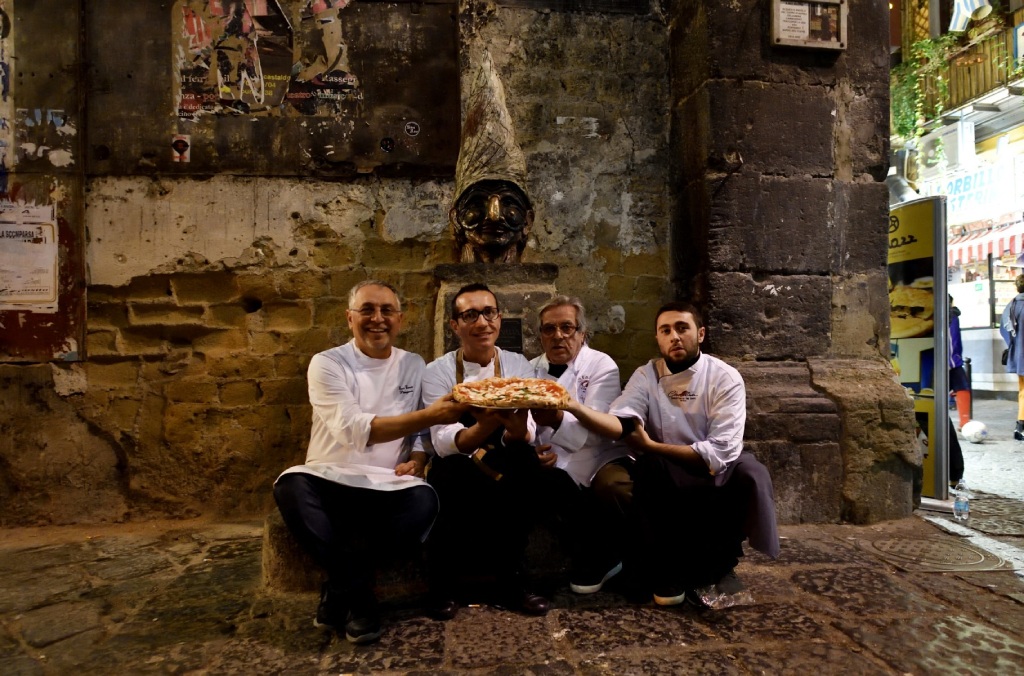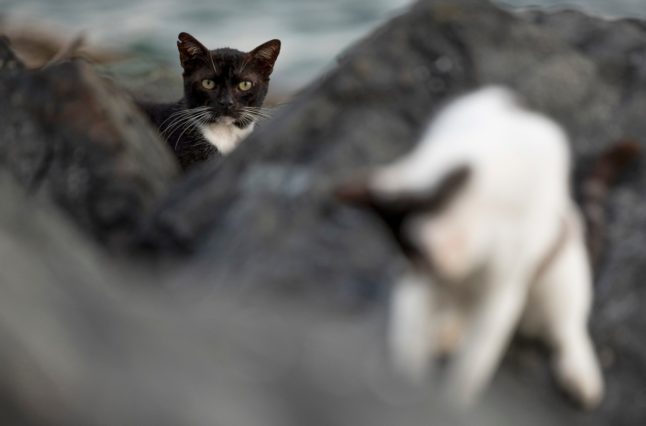Anyone who’s ever set foot in Italy knows there are plenty of unwritten rules that residents and visitors alike are expected to abide by – and, of course, some of the most important ones revolve around food.
But while splashing a generous dollop of ketchup on any given pasta dish or topping seafood dishes with grated cheese may still be all but hanging offences in the bel paese, one of the pillars of Italian food fanaticism may be showing some cracks after years of staunch fighting from food innovators all around the world.
READ ALSO: Seven surprising Italian food rules foreigners fall foul of
Late last week, Gino Sorbillo – by and large one of the world’s most renowned Neapolitan pizza maestros and owner of the popular Sorbillo chain – added the dreaded pizza all’ananas, or pineapple pizza, to the menu of his historic restaurant in Naples’ Via dei Tribunali.
Sorbillo’s latest creation – a pizza bianca (i.e. with no tomato layer) boasting no fewer than three types of cheese and a caramelised pineapple topping – was by the chef’s own admission an attempt at “combating food prejudice”.

“I’ve noticed in the last few years that lots of people were condemning ingredients or ways of preparing food purely because in the past most people didn’t know them, so I wanted to put these disputed ingredients – that are treated like they’re poison – onto a Neapolitan pizza,” he said.
“We use speck from Alto Adige, mortadella […], chopped pistachios, powdered olives, mozzarella foam, even jams. Why shouldn’t we rediscover pineapple?”
If Sorbillo’s intention was to foster a countrywide debate over whether or not pineapple on pizza should continue to be seen (and treated) as culinary heresy, he certainly succeeded as the controversial creation ended up being discussed even on national TV.
READ ALSO: The 11 worst food crimes you can commit according to Italians
What’s more impressive though is that, while hundreds of social media users expressed utter outrage over Sorbillo’s new pizza (X user Massimo Costa even went as far as inviting “all Neapolitans to boycott Sorbillo should he add pineapple pizza to the menu”), many came to the chef’s defence.
Barbara Politi, a food journalist who rushed straight to Naples to try the new pizza last weekend, shared positive reviews.
“It’s good, fresh, I’m in favour of it,” she said. “Did you know that pineapple has been part of Europe’s food culture since Christopher Columbus tasted it in Guadeloupe in 1493 and brought it back?”
And even fellow Neapolitan pizza maker, award-winning Vincenzo Capuano, defended his colleague’s latest gamble on Wednesday.
He asked provocatively on Threads: “Does pineapple pizza scare you more than 10-euro all-inclusive menus: pizza, drink, fried dessert and coffee?”
READ ALSO: Five tips for ordering pizza in Italy
So, could this be the beginning of the end for one of Italy’s most feared food crimes? Will we in a near future see pineapple pizza enter the menus of other prestigious pizzerias around the country?
As the old adage goes, chi vivra’ vedra’ (‘only time will tell’).
In the meantime, Sorbillo has already used the criticism generated by his peculiar pineapple pizza to dish out another controversial creation: pizza al ketchup (pizza with homemade ketchup topping).
“When the pineapple pizza came out, someone wrote, ‘Now see if you can do a ketchup one, so I did it,” he said. “And another row started.”



 Please whitelist us to continue reading.
Please whitelist us to continue reading.
Member comments